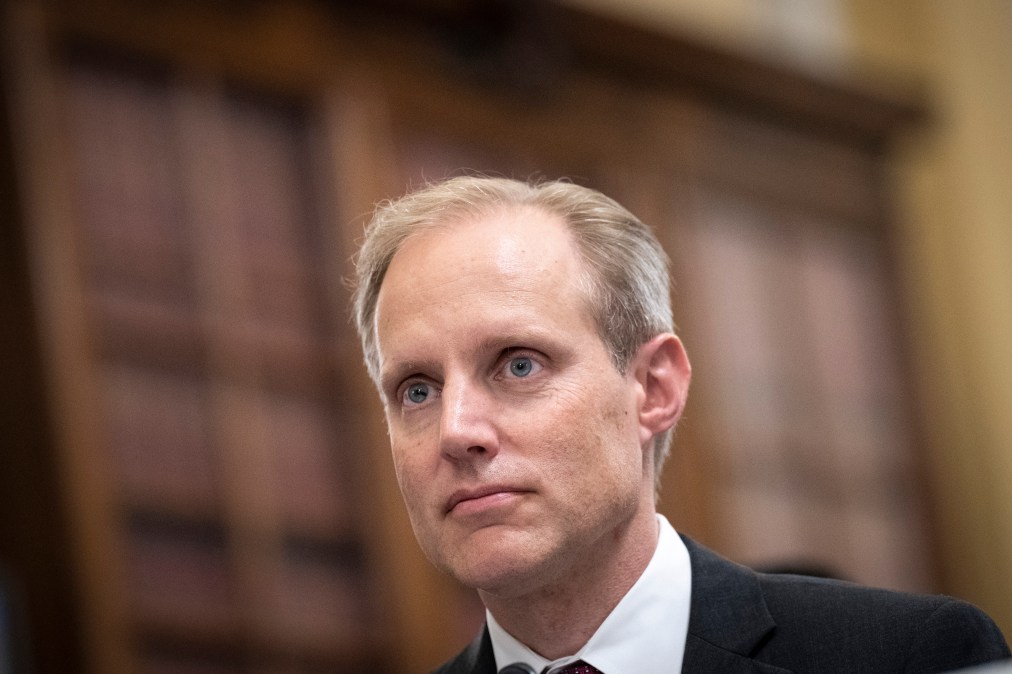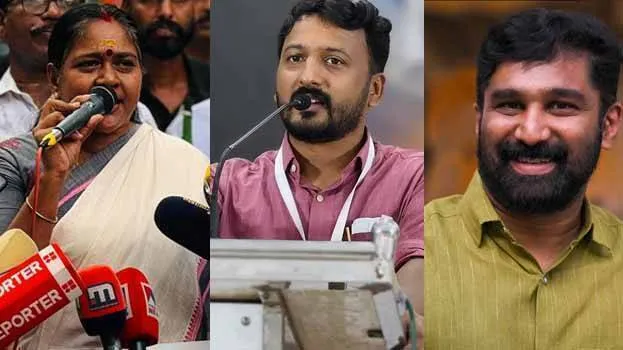
By Derek B. Johnson September 19, 2024 Steve Simon has served as Minnesota’s 22nd Secretary of State since 2015, overseeing elections across 87 counties and managing the state’s voter registration database. His tenure has spanned three presidential election cycles, including in 2016, when the Russian government waged a covert campaign to interfere with U.
S. election infrastructure, and in 2020, when false claims of election fraud by outgoing President Donald Trump and allies fed a wave of suspicion, paranoia and threats of violence toward election officials. More recently, as the advent of generative AI tools have made it easier for bad actors to create false or synthetic media about elections, Minnesota was one of the first states to incorporate the threat into statewide tabletop trainings and exercises .

In July, Simon, a member of the Minnesota Democratic Farmer Labor Party, was named president of the National Association of Secretaries of State, succeeding Scott Schwab, Kansas’s Republican secretary of state. CyberScoop spoke with Simon about the state of U.S.
election security in 2020, what’s top of mind for him and other state election officials, funding tussles with Congress and how his office approaches mis- and disinformation about voting from foreign and domestic actors. The transcript has been lightly edited for clarity. CyberScoop: We are 48 days or so out from election day.
What is top of mind for you from n security or integrity standpoint? Where are you spending most of your time and energy? Steve Simon: I’ve often said throughout this election cycle, what I wish for between now and election day is two things: high turnout and low drama. I’m pretty confident about the high turnout part, certainly for our state; we typically lead the nation in turnout. The low drama part, I’m less sure about.
There’s a security dimension to making sure we have low drama. There are multiple types of security: cybersecurity, physical security and then a different kind of security that has to do with confidence in the system itself. It’s a security issue in the sense that there’s a point at which, at the extremes, people who lack confidence in the system could act out in really harmful and potentially violent ways and we don’t want that.
We’re really focusing on the low drama part and there’s multiple dimensions to that. You were recently named president of the National Association of Secretaries of State. How does that affect or influence the way you talk about things like election security, when you’re at times speaking not just for yourself or your own office, but also trying to represent 49 other states? I try to be very careful about that.
I never want to seem like I’m speaking for another secretary or another state, except to say that Americans generally should really feel confident. We have an excellent group of secretaries of state in both political parties who both want essentially the same thing: for voters to have accurate information and access to voting. They want an orderly election and that’s what we’re all shooting for.
I’m focused day to day on my own state in Minnesota, but conscious of the fact that given the position, I need to be careful about seeming to speak, when I don’t need to, for other secretaries. AI has been a very hot topic this past year, particularly as things like deepfakes get better, more realistic and easier to use. At the same time, we’ve seen these technologies deployed in other democratic elections this year and there’s not much evidence right now indicating that they’re having a measurable impact swinging election results.
What do you see as a realistic scenario that your state or others could face from these technologies over the final stretch run of the election, or perhaps beyond election day? What can you do about it? A few things occurred to me. I agree with your assessment — I would just add that we have a recent high-profile precedent which is actually a cause for optimism, and that is, during the NH primary, on the Democratic side there was the fake Biden AI robocall . The good news is it was detected, and it was detected early.
I think my counterpart [New Hampshire Secretary of State David Scanlan] did a great job, as did [Attorney General John Formella]. They also did a good job of not overplaying it to spread a false message. Identify, isolate, and call out that kind of disinformation.
That approach actually gives me hope. Surprisingly, secretaries of state have talked a lot with one another about the topic. There’s been a lot of cooperation and collaboration up, down and sideways, whether it’s our office’s partnership with the federal government, with the Department of Homeland Security, with CISA and with counties, cities and towns here, so that we’re all on alert for these kind of things.
I’ll also say I don’t see AI as a new threat in and of itself. I see it as a new way to amplify or magnify existing, longstanding threats. Election disinformation goes back not just years but centuries, but now with AI, there are means to spread it more quickly, with means that appear more authentic, and that’s what we need to focus on.
I think the high-profile examples in this country have provided a map for how to deal with that challenge. Still, it’s hard to predict how that will play out. Minnesota is one of the states that have enacted laws aimed at trying to overcome the challenge of AI and deepfakes in election contexts.
I don’t know of any instances yet where the law has been triggered or used. We now have a law in Minnesota saying that within 90 days of an election, it’s now unlawful to use an AI deepfake if it’s done without the permission of the depicted person and for the purpose of influencing the outcome of an election. That second prong is meant to insulate clearly protected free speech like comedy or satire.
If Saturday Night Live does a deepfake sketch of Kamala Harris and Donald Trump, obviously that’s not triggering this law. It’s meant for the Biden robocall situation. To my knowledge, it hasn’t been triggered yet so that’s a good thing, but we still have six weeks to go.
I do think we have a pretty good template based on the New Hampshire situation on just how to handle it in a practical manner. Earlier this year, congressional Republicans voted for an appropriations bill that would eliminate federal HAVA grant funding that states have used for decades to fund election security and administration. Are groups like NASS engaging with the Hill on the need for additional funding, what have those conversations been like and do you think you’re making any progress with skeptics? Many individual secretaries are involved, including me, in making sure that we have not only additional funding but reliable funding.
Speaking for myself, as you know there have been outlays, periodic outlays in the last few years, which we’re really grateful for. They are unpredictable bursts, and they don’t come at reliable intervals, and so when we get this money, we don’t know whether we’re supposed to make it last one year, three years or 10 years, because we don’t know when the next one is coming. What tends to happen is we tend to save it, because we’re sort of hoping for the best but planning for the worst, which is that we won’t get another burst of funding for a while.
But that has the effect of showing up on a ledger of states sitting on a bunch of HAVA money. So the attitude in Congress is, why should we give more money when they’re sitting on that money? The reason some of us still have fund balances is these are people’s livelihoods. We have people in our office who are funded entirely by this money and we don’t know if the next one is coming next year or 10 years, so we’re operating cautiously.
That’s the central challenge here. So if Congress said, “Hey, every five years or three years or 10 years, you’re going to get another burst of HAVA money,” we could meter it out. But since we don’t, we’re erring on the side of cautiousness.
I don’t blame legislators for having that impulse, but I’m hopeful that over time, members of Congress from both parties will understand this from our point of view. Because if we spend it all, we can get the number to zero where it looks good on a spreadsheet, but we’re running a real risk of laying people off. And it’s not worth the risk, so we’ll take the security over the appearance issue of still having money on the bottom line.
One of the products of the increased partnerships between states and the federal government has been a concerted effort to grant security clearances. Can you talk about how your office has made use of that this election cycle and what value add that gives you in terms of fulfilling your election security mission? I think it’s been a game changer. I will speak broadly.
When DHS in January of 2017 designated election systems as critical infrastructure, that really was a game changer. We joined other sectors at that point, including hospitals, military bases, the water sector, and other core sectors of American life in enjoying those protections. One of those things we got was the opportunity to have a select small number of people in our office get secret security clearances and get regular classified intelligence briefings about the threat environment.
And that has been so helpful, speaking for myself and my office, for understanding what the threats are, how worried we should be or not. And it’s helped us to make decisions internally about how to deploy money, people and resources. We get some sensitive information, which we obviously can’t share, but that has really helped.
It’s a limited number of people in each office who get that clearance, and in fact we have a classified briefing coming up next week, and it’s been really a great benefit, really useful as we’re doing our planning. I can confirm at least what’s been publicly reported, which [is that] there are active influence operations going on. I want to make a distinction that the reporting has been that these are influence operations, not election interference operations of the kind we did see in 2016.
This isn’t foreign government attempting to actually infiltrate election infrastructure. This is online, this is social media. Recently the Justice Department announced charges against one or more Russian nationals who had paid hundreds of thousands of dollars to influencers to get certain lines of argument out in the American political bloodstream.
That’s an influence campaign; it’s meant to color Americans’ views. What we’re trying to do is limit ourselves to election-related mis- and disinformation. don’t endorse candidates for any level of office, and we don’t ever weigh in on who people should vote for.
For us, it’s about disinformation that has to do with the election system. Our philosophy, our policy is if we see mis- or disinformation about elections, whether intentional or not, whether it has foreign origins or not, we seek to confront it and correct it. We’re kind of agnostic about the source.
What matters is, are there myths or lies about elections out there? I think for us it’s about just counteracting mis- and disinformation, whatever the source. Election officials have to deal with campaigns by foreign governments to interfere with or influence the election process, but it’s no secret that they also have to grapple with domestic actors, sometimes even elected officials, or parties, or campaigns, who engage in similar tactics. How do you balance the responsibility to push back on things like domestic disinformation and insider threats when the people carrying it out are Americans? That becomes more difficult, because it’s very important for us to be totally nonpolitical and nonpartisan, and once in a while there’s an actor who will say something that’s off about the system.
Not an opinion, just something that’s not true. Of our responsibilities in our office here’s one thing: we don’t count votes. That’s done at cities and counties and towns.
We aggregate and post vote totals. You can easily find on social media people in political spaces suggesting that I and my colleagues across the country are secretly, with our mystery algorithms, seeking to boost the vote totals for candidates we like and take away votes from candidates we don’t like. We don’t even have the ability to do anything like that.
Other examples include folks who suggest or allege that election equipment is changing votes from candidate A to candidate B. For a lot of reasons, we know that’s false in Minnesota. That gets frustrating but we need to call that out.
Be transparent, explain to people — not just those spreading this mis- and disinformation but people at large — the practices we have in this state to know that’s not true. But it is a challenge. Experts have expressed worries that levels of division and anger are so high this election season that there is a very real threat of post-election violence.
Can you talk about what, if anything, your state is doing to plan for that eventuality? A few things. First of all, we learned a lot from 2020. Not just in Minnesota, everybody.
We know what to be on alert for. There’s obviously Jan. 6, and things like alternative electors, but there is also Dec.
17 [when members of the electoral college in all states gather to vote for the next president and vice president]. We have our state canvassing board, where we certify the election in Minnesota. I can’t control what happens in Washington D.
C., but we have an eye towards security for all those events, just to make sure that we don’t have a repeat of what we saw in other places in 2020. We’ll have the electors come in to cast their electoral votes and we just want to make sure that we’re doing our best to attend to security.
So we’re already having security discussions about that day. Any parting thoughts? The only thing I would say is I really remain mostly an optimist. The glass is more half full than empty.
We learned so much from 2020 and we’re in a better position now to meet the moment, an even better position than 2020. That was the time of COVID and a lot of other stuff going on. We don’t have that distraction this time, and we’ve learned from experience.
So I’m optimistic we can have those two things, high turnout and low drama. We need to work at it but I’m mostly optimistic..













